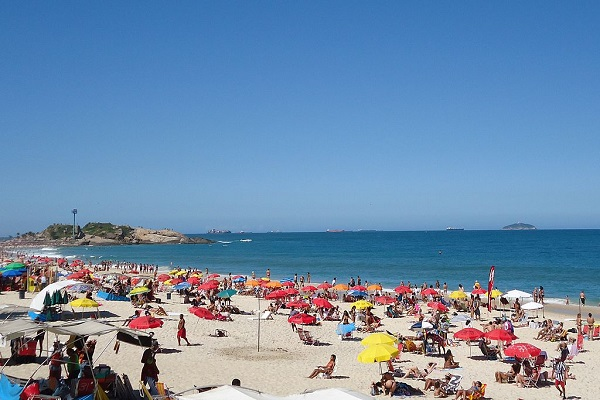During the summer, temperatures hit high marks in Rio de Janeiro and people gather at the beaches to cool off. However, this is also the moment when violence in the coastal areas increases significantly. This year, things were not different. In January, thermometers recorded 39,2°C, and despite the public and private security efforts, episodes of violence, specially connected to property crimes, burst everywhere. Thefts are the main issue, but robberies, mass robberies, aggressions and even lynchings are not rare.
This Content Is Only For Subscribers
To unlock this content, subscribe to INTERLIRA Reports.
INCREASE IN PROPERTY CRIMES AND VIOLENCE IN RIO’S BEACHES
In Rio’s waterfront, the most common threat is theft, but the incidents can take various forms and escalate from a simple snatch-and-run action to more dangerous interactions, such as a robbery, or a mass robbery. The national and international influx of tourists attracts criminals who look for easy victims. They are the prime targets, because visitors are not used to the area and normally carry sought-after items, such as foreign currency, expensive watches, cameras, cell phones, and jewels. Still, even those used to Rio’s violent routine often become victims, anyone who is distracted and expose valuable items is a strong potential target.
This scenario is verified through recent statistics. According to data from the Public Security Institute (ISP), from July to September 2021, there were 282 robberies and 901 thefts in the areas patrolled by the 19th and the 23rd Military Police Battalions (BPM), which include Copacabana, Leme, Leblon, Ipanema, Arpoador, and São Conrado beaches. From October to December, even before the height of the summer, 317 robberies and 1.078 thefts took place, which represent respectively 12% and 19% increases.
Mass robberies, a known risk from Rio’s beaches, have been reported early this year. The 1st incident happened in Copacabana, during the New Year’s Eve fireworks. In the event, 4 people were stabbed while being robbed, some of them attempted to resist the criminals, which is not advised. As the summer advanced, more cases were recorded in Arpoador, Copacabana and Leme.
Clandestine parties at the beaches also became a trend this summer. One of them took place in Ipanema and it gathered thousands of participants. The party happened in Posto 8, and it had robberies and fights reported. Another one, in Recreio, was prevented from happening by the police. The non-official night events concentrate several risks, especially because they normally do not have security, and when there is, it is informal, and it is not supported by police.
PUBLIC AND PRIVATE EFFORTS AGAINST VIOLENCE AT THE BEACHES
To fight the routine of public violence, city and state governments have implemented the Operation Summer, which started earlier, in August 2021, after 30 buses were vandalized in Copacabana, during a weekend of crowded beaches. The initiative counts with dogs, helicopters, cavalry, smart cameras, extra personnel from the police (PM) and the city guard (GM). Despite this large operation, the statistics and events reported above reveal that the public forces still struggle to reduce crimes.
Attempting to fill the gaps left by public authorities in the security field, kiosks have started to hire private guards to provide protection in their vicinities. Nevertheless, this approach brings risks, mostly regarding the professionalism of the guards hired. Untrained professionals are common, and they can lead to several incidents while dealing with the public, such as excessive use of force.
JUSTICE WITH ONE’S OWN HANDS
The violence in the Rio’s shore led to another phenomenon: lynchings of suspects. In the last 3 weeks of January, at least 12 lynchings were reported in Rio’s South Zone waterfront. These incidents seem to appear as the population becomes more frustrated with recurrent thefts and aggressions added to the lack of a solution from the government. According to specialists, this is seen by many as an act to right an injustice, but it is a crime that can kill. However, usually, the police ignore lynchers due to shared frustration. In addition, those who try to stop lynchings, put themselves in danger, as they may become the target of a mob. The chaos in the area is also favorable to more petty crimes.
A POLICE AND SOCIAL MATTER
The challenge of protecting all Rio’s main beaches during the summer is significant. Such an extensive area occupied by large crowds requires a “war operation”, as recently stated by the Military Police Secretary Colonel Luiz Henrique Pires. Still, the presence of police may not be sufficient. According to Rio de Janeiro Civil Police Secretary Allan Turnowski, the security problem in these areas is beyond the police aspect. For him, this is more a social matter connected mostly to minors, who frequently do not have a criminal history and cannot be arrested. This specific condition demands a task force with different segments: Public Defender’s Office, Public Ministry, police, City Hall, and others in order to organize a joint action and bring tranquility to those who want to enjoy the summer.




